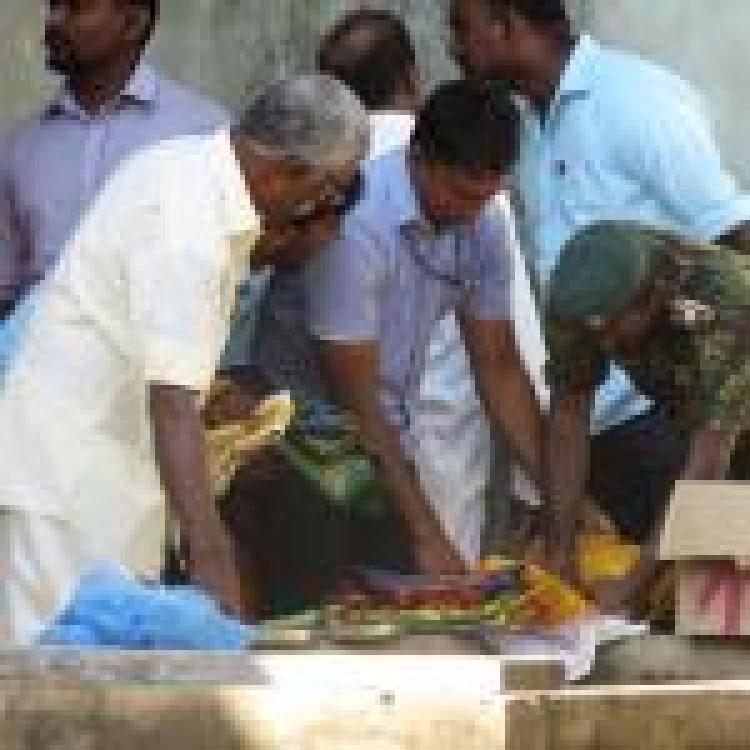For the first time in 34 years, Tamils in Jaffna have been allowed to worship at the Sri Rajarajeswari Amman Temple in Palaly, but much of the surrounding area remains occupied by the Sri Lankan military and off limit to locals.
On November 20, 2024, the military granted permission for public access to the temple, marking the first time in decades that Tamils have been allowed to worship at the temple which was cordoned off by Sri Lanka's military.
The Sri Rajarajeswari Amman Temple was made inaccessible during the armed conflict in June 1990 when the army occupied the region and residents in the surrounding area were displaced. The area was subsequently declared a high-security zone by the Sri Lankan military, barring civilians from entering. Despite the recent relaxation of restrictions, large portions of land in the area remain under military control, and many displaced Tamil families have yet to see their lands returned.
During the previous administration under former president Ranil Wickremesinghe, some temples, including the Sri Rajarajeswari Amman Temple, were granted access to the public on Fridays. This marked the beginning of a gradual easing of restrictions. While the temple is now open for daily worship, the high-security fences surrounding it have not been fully dismantled. The military has promised to officially hand over the temple to the public by December 4, but doubts persist about whether unrestricted access will truly be granted. Worshippers visiting the temple currently remain subject to certain limitations imposed by the military.
.jpg)
This latest development comes after years of intermittent access negotiated by Tamil leaders and activists. In 2002, following the ceasefire and peace talks, the late former Minister T. Maheswaran negotiated with military officials to allow people to visit the temple during specific religious events, such as Pongal. However, as peace talks broke down in 2005, access to the temple was restricted once again.
In 2015, Maheswaran's wife, Vijayakala Maheswaran, the then Deputy Minister of Women's Affairs, successfully negotiated for public visits on special days. Permission was later extended in September 2016 to allow worshippers access to the temple during the full 10-day Navaratri festival.
In 2022, however, the temple suffered a setback when several ancient idols, including Murugan idols, were stolen. A complaint was filed with the police, and the theft was widely reported in the media.
Despite the easing of restrictions, the high-security fences around the temple have not been fully dismantled and the military continues to occupy vast swathes of Tamil land in Palaly. Thousands of displaced families have been unable to return to their homes, and large portions of land remain under military control, fenced off as part of so-called high-security zones.

